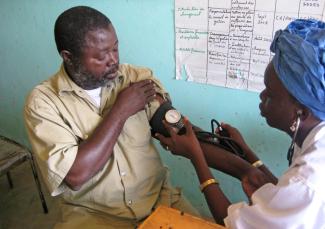USAID has partnered with the Ministry of Health and Social Development, civil society, and the private sector for over 60 years and remains Mali’s largest bilateral health donor. USAID’s health programs focus on strengthening communities’ capacity to protect their own health and strengthening the health systems that underpin successful expansion of, access to, and use of high impact primary health care services in the areas of maternal and child health, voluntary family planning, and disease prevention and control. USAID is the lead United States Government (USG) agency in public health programming in Mali, and coordinates other USG actors such as NIH, CDC, and DOD in the implementation of several U.S. Presidential Initiatives; namely, the President’s Malaria Initiative (PMI), the President’s Emergency Response to AIDS Relief (PEPFAR) and the U.S. support of the Global Health Security Agenda (GHSA), including COVID-19 and Ebola preparedness and response. USAID/Mali health programs cover three quarters of all health districts in the country accounting for 17 million people, 80% of Mali’s population.
FACT SHEETS
- Keneya Nieta (Household and Community Health)
- Keneya Sinsi Wale (Health System Strengthening, Governance and Finance)
- Presidential Malaria Initiative
- Global Health Security Agenda
- Momentum Private Healthcare Delivery
- Momentum Integrated Health Resilience
- Global Health Supply Chain
- Maintaining Epidemic Control (EPIC)

USAID/Mali
